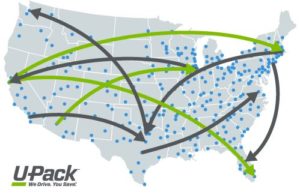Challenging, competitive career progression is the norm in highly-educated professions:
Law: clerk, associate, junior partner, senior partner, managing partner
International banking: intern, associate, analyst, unit director, executive position, board of directors
Journalism: staff writer, reporter, section editor, editor, managing editor
The trials and tribulations of academics don’t compare to these and similar fields. We can decry publish-or-perish pressures, lack of appropriate valuation of teaching and advocacy, pressures to travel to scientific meetings, competition for scarce grant funding, and biases in the workplace. And these hurdles can be demoralizing and can derail well-rounded lives.
But, let’s be clear. We’ve got it good. I graduated college more than 30 years ago as tight friends with two people who went on to have graduate educations of similar duration and demands, with similarly low training incomes. One, a writer, joined a national news magazine, the other, an operations researcher, builds models of international investment market returns. Neither had long term contracts in the early career phase or after.  They have been moved cross the country and to other countries by their companies — multiple times on short notice. Both worked similar or more demanding hours than I did in the lab. Both delayed starting families, I did not. We have similar incomes.
They have been moved cross the country and to other countries by their companies — multiple times on short notice. Both worked similar or more demanding hours than I did in the lab. Both delayed starting families, I did not. We have similar incomes.
As a condition of advancement, they changed jobs and roles more often than typical in academics. They had fewer opportunities for defined levels of promotion and work at the whim of metrics like reader base and market returns. They reported to difficult supervisors, who were at times extremely controlling, until decades into their professional careers. They had little autonomy despite impressive skills and no history of stumbles. Budget cuts and elimination of whole work units were not unusual.  To this day, both keep a “go bag” in their office or home to leave for work-related travel in under two hours. They are effective and passionate, talented and recognized in their fields. But they will not reach the top roles in their organizations because such positions are exceedingly rare.
To this day, both keep a “go bag” in their office or home to leave for work-related travel in under two hours. They are effective and passionate, talented and recognized in their fields. But they will not reach the top roles in their organizations because such positions are exceedingly rare.
In contrast, I am largely an academic entrepreneur with a permissive release to pursue the science I believe will answer key questions. I enjoy the competition. I’m responsible for communicating the value of my work, I pick my team and my colleagues, and I am encouraged to mentor. In my field, and within my institution, we connect rather than savaging each other. I am directly incentivized by traditions of peer review of grants and publications to put forwarded the strongest possible case for my science. If I am capable and caring in the classroom, leadership does not have much concern for how or where I complete my other academic work. Travel is at my discretion and meetings are reunions with intellectual friends. Breakthroughs are celebrated rather than disparaged by competitive colleagues. In short I chose what to work on and when and how to do it.
 Not so for my friends. Maybe as we look to challenges facing academics, we should still celebrate the liberty of exploration and discovery that is unique to academic research endeavors.
Not so for my friends. Maybe as we look to challenges facing academics, we should still celebrate the liberty of exploration and discovery that is unique to academic research endeavors.
